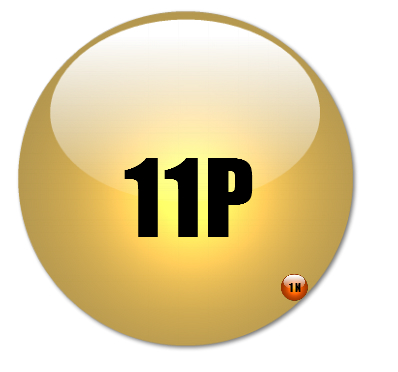 Best Coaching Blogs 2013 is under way and already the social butterflies are pollinating hundreds of admiring voters. (If you haven't entered yet, you still have time to win, but sign up now.)
Best Coaching Blogs 2013 is under way and already the social butterflies are pollinating hundreds of admiring voters. (If you haven't entered yet, you still have time to win, but sign up now.)
I'm going to share some secrets of Online Social Butterflies and how they win Best Coaching Blogs, each year. You see, mastering social media cross pollinates with mastering coaching. That's my evil, um... divine plan!
First, what's a social contest, anyway? It's a win-win online contest that leverages everyone's social reach (friends, contacts and followers on sites like Facebook, Twitter, LinkedIn, and Google+) to attract large audiences for popular voting. Ultimately, everybody wins because contest visitors discover more great coaching bloggers when they visit the site.
Wait! Does that mean coaching bloggers could lose potential clients to their competition? Nope! I'll explain, uno momento.
If you want to see Online Social Butterflies in action, follow the Best Coaching Blogs 2013 List on Twitter. You can pick out the front-runners without even visiting the contest, because they regularly tweet about the contest. Also, search for hashtag, #BestBlogs for related tweets.
Best Coaching Blogs invites coaches who blog on coaching topics to enter their blogs and each year, both new and established blogs win top honors. The winners actively 'play the game' by inviting their readers, colleagues, clients and social reach to come vote for them. People can vote as often as they like, so the contest measures more than just the number of people who like a blog, it also measures passion: both the voters' and the bloggers'.
Passion is a big deal in coaching. It's what ignites clients and creates success. But competition? Not so much. At least not for a lot of clients.
Cooperation, mutual support, acknowledgment, belief in others; that's the stuff of coaching. And it's also the stuff of social media mastery. Both realms, coaching and social media, require that we get our little egos (that part in each of us, that always wants to WIN!!) out of the way and make it all about other folks - without turning ourselves into robots or doormats.
Winning Best Coaching Blogs usually requires more than just a great blog, although great writing and content definitely help. Winning requires the right balance of competition and cooperation. I don't know an English word for that, so I made one up: coopetition.
Here are Some Winning Secrets to Coopetition:
- Start early. Be the kind of person who supports and champions others, as a matter of course. The more history you have doing this, the more people will want to do the same for you. Wait until you need something from them (like a vote) and it could backfire.
- Embrace your selfish reasons. Yes, it's totally okay to be for yourself. Just don't be that way, only. If you try to deny your agenda, people won't trust you. If you fail to express it, people will walk all over you. So go ahead and ask for people's votes. If you've been supporting them, they'll want to help. Even if you haven't, they'll respect your request.
- If you're already supporting others and clear with them about what you want, you're ready to play a fun game. In Best Coaching Blogs, that could mean leaving comments on competitors' blog entries that acknowledge what's great about those blogs. It could also mean voting for your competitors (!), or even telling the world why they should vote for your competitors (!!). You could even ask your competitors to vote for you (!!!). This can get icky and manipulative fast, though, so take care.
- Why is coopetition a winning strategy? Because being a model of coopetition is extraordinarily attractive. It seems like people who act that way should lose out, but they win, instead. The bloggers who do it best always attract more voters, readers and clients, rather than lose them. So it's about a lot more than winning a contest.
- Trust the process. This is hard for high achievers, but you really can't control most of the moving parts in this process; you can only influence them. Resist the urge to pester people, or to obsess about whether or not all your votes get counted. Not even Zuckerberg has total control of Facebook.
- Even in life, it's the folks you support who 'vote' for you and what you want. That's the coopetive advantage. In Best Coaching Blogs, it's the finalists who pick the top winners, so those who play the game well, immediately become the biggest influencers. But 'winning at any cost' is a losing strategy in this contest, as well as in life.
- How does this relate to coaching? People who can let go of their need to win, to be right, to never fail, and who can support and champion others, make great coaches. Entering Best Coaching Blogs is a 'game theory' approach to coach development. If you're interested in becoming a great coach, be sure to participate. Vote here through August 31st. Enter here only through July 31st.





 I'm always looking for new ideas that'll upgrade, broaden, or deepen my coaching, so it's more effective. You too? Then you'll love this post.
I'm always looking for new ideas that'll upgrade, broaden, or deepen my coaching, so it's more effective. You too? Then you'll love this post.






 life coaching, you're probably dead wrong.
life coaching, you're probably dead wrong.

